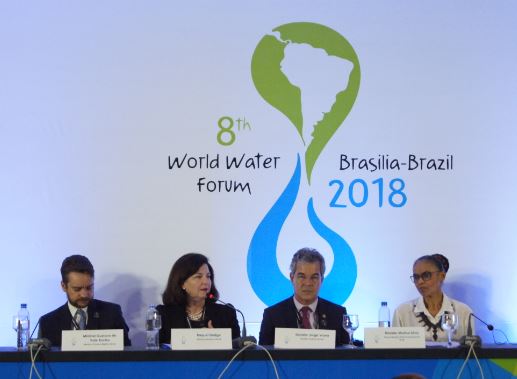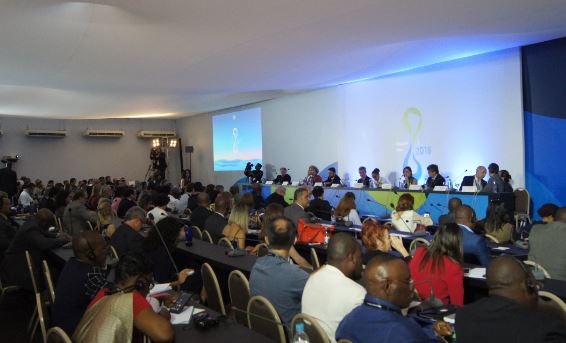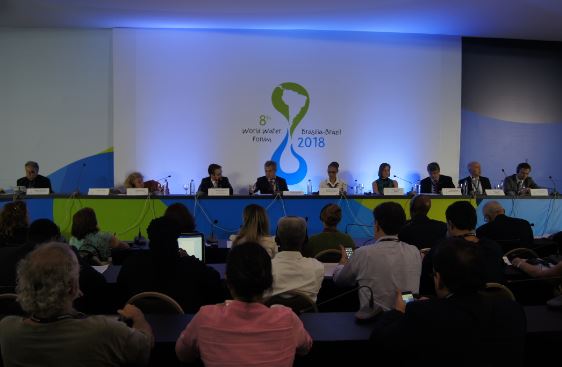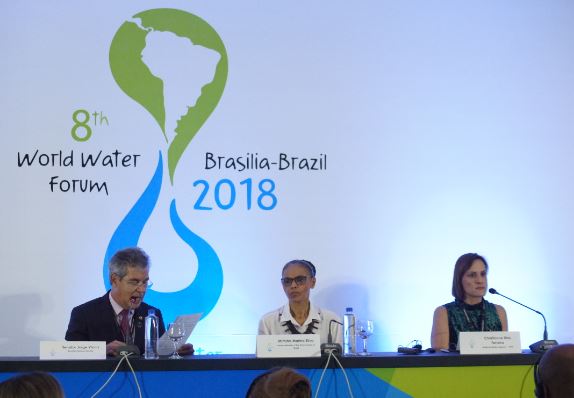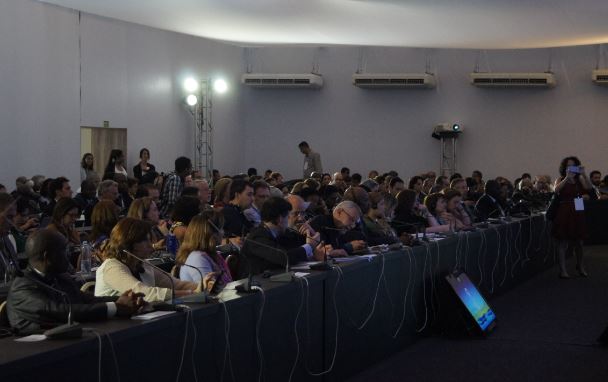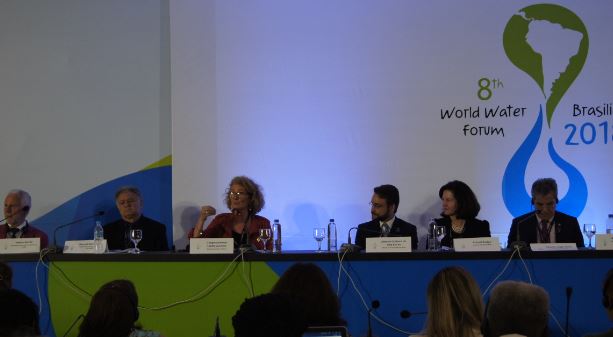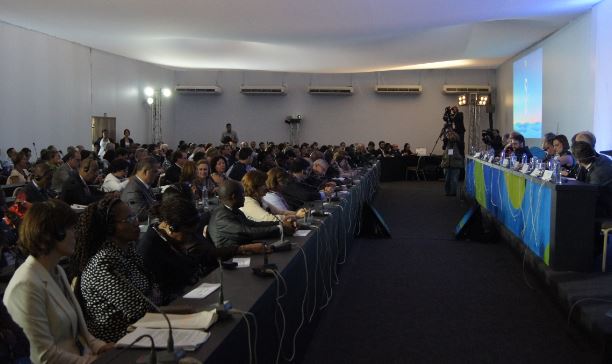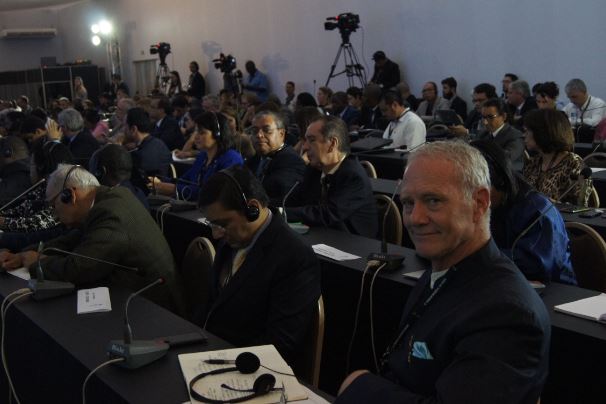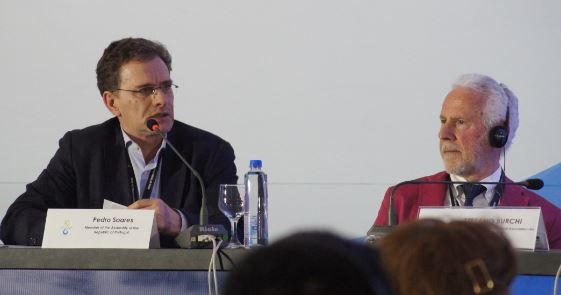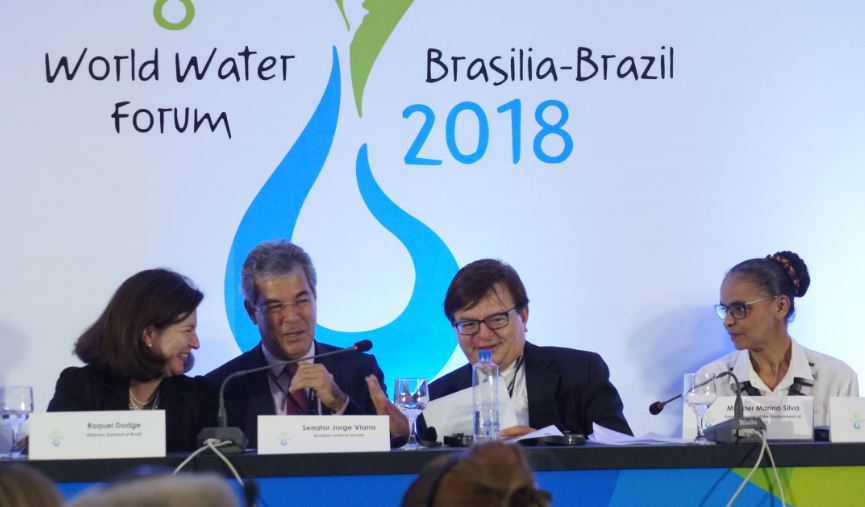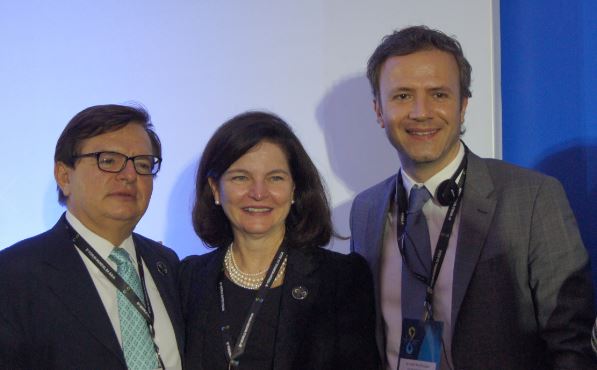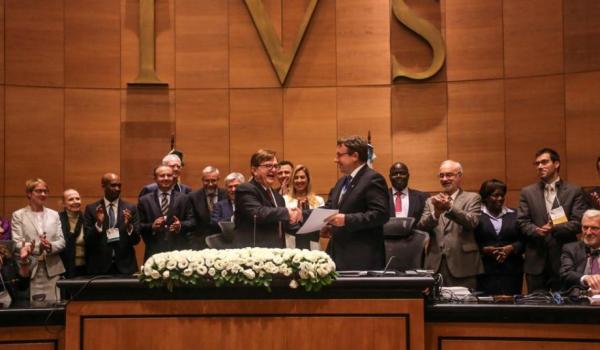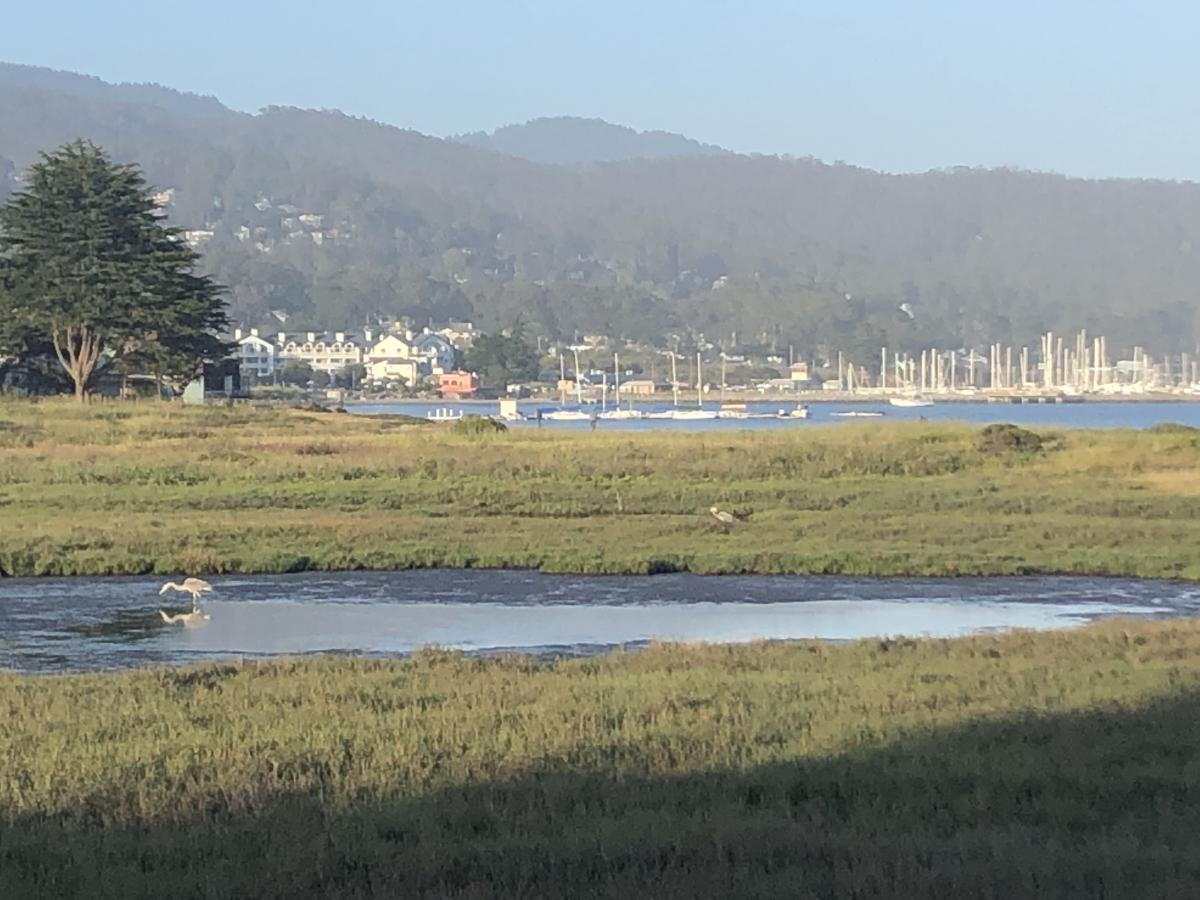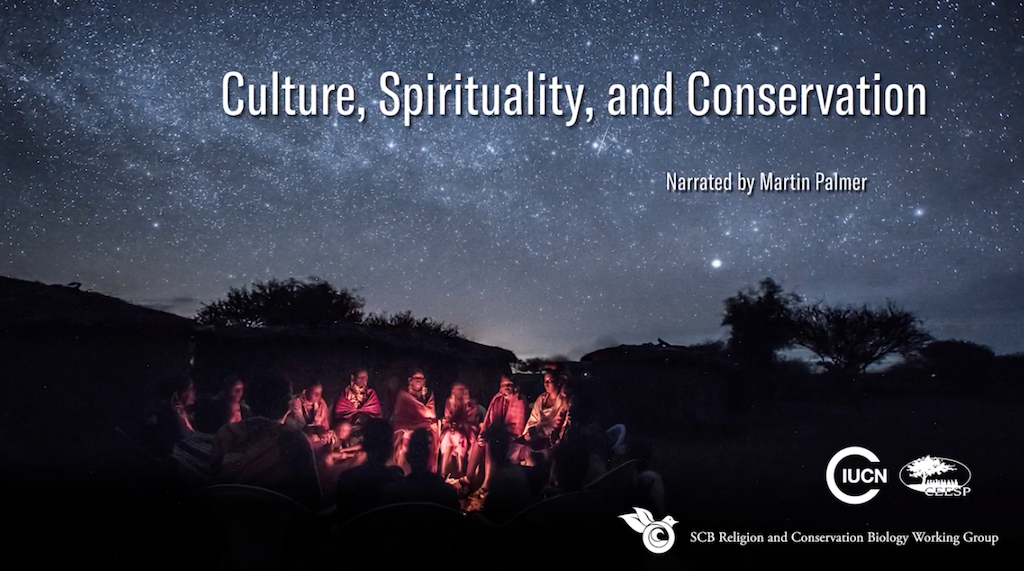8th World Water Forum: Joint Session of Legislators, Judges, and Prosecutors
As part of the 8th World Water Forum, a Joint Session of Legislators, Judges, and Prosecutors convened on 20 March to exchange ideas for “Designing Better Environmental and Water Laws.”
The Joint Session of Legislators, Judges, and Prosecutors was a highlight of the Conference of Judges and Prosecutors on Water Justice during the 8th World Water Forum in Brasília (Brazil). Senator Jorge Viana (Chair of the Brazilian Joint Senate and House of Representatives Permanent Committee on Climate Change and Coordinator for the 8th World Water Forum Parliamentarian Subprocess) and Minister Raquel Dodge (Attorney General of Brazil) co-chaired the event. Additional speakers on the panel were:
- Minister Gustavo do Vale Rocha (Interim Minister of Human Rights of Brazil);
- Justice Ricardo Lorenzetti (Chief Justice, Supreme Court of Argentina and Member, Interim Governing Committee, Global Judicial Institute on the Environment);
- Congresswoman Sophie Auconie (National Assembly of France and President, French Water Society);
- Senator Cristovam Buarque (Federal Senate of Brazil)
- Manoel Sobral Filho (Director, United Nations Forum on Forests Secretariat);
- Minister Marina Silva (Former Senator and Minister of the Environment of Brazil);
- Congressman Pedro Soares (President, Environmental Commission, Assembly of the Republic of Portugal);
- Arnold Kreilhuber (Deputy Director, Environmental Law Unit, UN Environment);
- Stefano Burchi (Executive Chairman, International Association for Water Law – AIDA);
- Christiana Dias Ferreira (Director, Brazilian National Water Agency – ANA); and
- Justice Antonio Herman Benjamin (National High Court of Brazil – STJ; Chair, IUCN World Commission on Environmental Law; and Member, Interim Governing Committee, Global Judicial Institute on the Environment).
Interventions during the session included:
- Minister Marina Silva discussed the need for leaders in the Global North to take a stronger stance on water issues considering that many nations in the Global South face water issues, including sanitation. She called for the recognition of water as a human right and described the current water crisis as a crisis of civilization, affirming that nations cannot afford to be inactive. Minister Silva declared that we cannot pass the current environment onto the next generation in its current condition.
- Minister Gustavo do Vale Rocha commended Minister Silva’s work and reiterated the need for wealthier nations to take a stance on water issues. Everyone recites statistics water issues, but Minister do Vale Rocha called for action.
- Attorney General Raquel Dodge called for water and sanitation rights to be included in the Brazilian Constitution. She emphasized that everyone must work together to protect water rights. She compared water to justice, asserting that the world is thirsty for justice. Similar to water breaking rocks, justice must break the rock of water inequity. Concluding, Attorney General Dodge introduced the creation of the Global Institute of Prosecutors for the Environment to increase training and capacity to reinforce work already under way through the many national and regional organizations of environmental prosecutors.
- Justice Ricardo Lorenzetti introduced the Global Judicial Institute on the Environment (GJIE) and stressed its importance to promote cooperation between countries for protecting water rights. He also addressed the need for wealthier nations to assist in addressing water issues and for stronger legal frameworks on water rights across the globe.
- Minister Sobral Filho examined the crucial relationship of forests and water. He articulated the need to prevent deforestation and the inherent connection of water issues and forest degradation. He also called for the elimination of poverty of all forest peoples.
- Congressman Pedro Soares called for citizen participation, noting that good laws are not enough to solve the water crisis. Effective laws depend on good pollical practice and thus politicians must use both ecological and economical frameworks when adopting water laws.
- Arnold Kreilhuber reinforced calls for vigorous public participation. He discussed environmental rights as human rights, and called upon everyone to become an environmental defender.
- Stephano Burchi noted the increasing complexity of water law. He advised that, in passing water laws, parliaments must consider: (1) science; (2) the capacity of governments to internalize laws; and (3) the capacity of users to participate.
- Ricardo Andrade called for participation across all sectors in addressing water issues.
- Justice Antonio Herman Benjamin emphasized the trust necessary in creating partnerships for water justice. He explained the session as a fruitful exercise to broaden discussions across multiple sectors. He addressed the necessity of transforming prosecutors' offices into forward thinking entities. He added that judges must work with the raw material of law to guarantee a protected planet for future generations.
The full programme and information about the Conference of Judges and Prosecutors on Water Justice can be found here.
